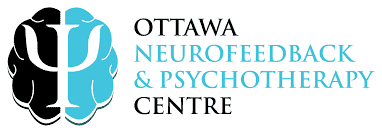Having been around for centuries, music has always been an integral and even a beneficial part of human culture. Music evokes thoughts and emotions, creates and unlocks memories, and provides solace and comfort during difficult times. In line with this, some people might not know that music can also be a therapeutic tool, used in the clinical setting as much as other tools are.
For those who might not be aware, music therapy is an evidence-based practice that is used to improve physical, emotional, cognitive, and social functioning. There are many different ways music therapy can benefit a broad range of people with certain mental health conditions, as music therapy can help manage anxiety and depression, relieve chronic pain, control addiction, reduce the symptoms of autism, and help with the treatment of other conditions like cancer, dementia, and PTSD.
What is Music Therapy?
As described above, music therapy is a type of therapy that uses music to address physical, emotional, cognitive, and social needs. Music therapists are skilled and trained mental health professionals who use techniques like singing, composing, playing instruments, and improvisation to achieve the client’s therapeutic goals. Music therapy is suitable for people of all ages and can even be adapted to suit individual needs and preferences.
The Benefits of Vocal Music Therapy
As mentioned, music therapists can use singing to perform music therapy on clients. Vocal music therapy is a specialized type of music therapy that harnesses the power of the voice for the improvement of the client’s physical, emotional, and social well-being. Some of the benefits of vocal music therapy include:
1. Improved breathing
Singing requires deep breathing, which can improve lung capacity and function. This can be particularly beneficial for those with respiratory conditions such as asthma or COPD.
2. Enhanced mood
Aside from improved breathing, singing can also release endorphins, the body’s natural feel-good chemicals. This uplifts and stabilizes your current mood, and if done often, can be especially helpful if you’re dealing with anxiety, depression, or other mood disorders.
3. Improved communication skills
Singing not only helps your breathing and mood – it can even help enhance your articulation, pronunciation, and intonation, as most songs have a certain set standard for these, so it can significantly help with speech and language difficulties. Vocal music therapy can also improve social skills, as singing in groups promotes cooperation and collaboration.
4. Beneficial for people with Parkinson’s disease
Singing has also been shown to improve voice control, as well as your swallowing function especially among those with Parkinson’s disease, which is a disease that can affects abilities related to speech and eating/drinking.
5. Beneficial for stroke recovery
Lastly, singing can help improve speech and language function among those who are recovering from a stroke, promoting relaxation and reducing stress, which can be good for the overall recovery of stroke patients.

The Therapeutic Benefits of Drumming in Music Therapy
As music therapy also involves playing instruments, drumming is a unique and powerful tool used in music therapy to address a number of physical, emotional, and even social needs. Some of the therapeutic benefits of drumming include:
1. Improved motor skills
Drumming requires coordination, which can improve fine and gross motor skills, which is specifically beneficial for those with neurological conditions such as traumatic brain injury or Parkinson’s disease.
2. Reduced stress
Aside from improved motor skills, drumming has also been shown to reduce stress and anxiety. Using your drumsticks to hit the drums can be cathartic for those who are experiencing stress or anxiety, thereby inducing calmness or relaxation and even lowering blood pressure.
3. Increased body awareness
Not only can drumming help with motor skills and stress reduction, but it can also help you become more aware of your bodily and physical sensations. Drumming can also be beneficial to those with body-focused repetitive behaviours like hair-pulling or skin-picking.
4. Emotional expression
Drumming can provide a safe and creative outlet for emotional expression, as it can help those who are going through music therapy process their emotions such as anger, sadness, and joy.
5. Social interaction
Promoting cooperation, enhancing collaborations, and boosting social interactions, group drumming can improve communication skills and help you feel a sense of connection and belongingness. By using rhythm and percussion, you can improve their physical and emotional well-being, and enhance their social skills as well.
Using Music Therapy to Manage Anxiety and Depression
Anxiety and depression can be managed with music therapy. Research has shown that music can decrease stress, lower heart rate and blood pressure, and boost your mood. In music therapy sessions, calming music is used by therapists to make clients relax, allow them to express their feelings, and most importantly, teach them coping skills through songwriting.
1. Music Therapy for Chronic Pain
Traditional pain management techniques such as medication and surgery may not always be effective in treating chronic pain, as it’s a more complex condition than most people realize. Music therapy can be utilized as an adjunctive therapy to manage chronic pain.
As research suggests, music can reduce the perception of pain, improve mood, and increase the quality of life. Music therapists may employ relaxing music to help clients with pain management by encouraging them to move to the beat of the music. Aside from that, music can distract the client from the pain.
2. Music Therapy for Addiction
Addiction is a complex condition that affects not only you but also your family and community. An effective tool to help those in recovery, music can provide a sense of purpose and meaning, increase self-awareness, and provide a healthy coping mechanism.
In a music therapy session, clients can use songwriting to let their feelings and emotions out in the world, encourage them to explore their past experiences through music, or use music as a way to promote relaxation.
3. Music Therapy and Autism
Affecting social, communication, and behavioral skills, music therapy can be an effective tool to help those with autism. Music can help develop communication and social skills, increase attention and focus, and promote self-expression.
The therapist may use musical games to encourage social interaction in sessions, as well as teaching clients to play instruments or using music to support speech improvement and language development.
4. Music Therapy for Cancer Patients
Affecting not only their physical health, cancer patients also deal with the decline of their emotional and social well-being. Thankfully, music therapy can be a powerful tool to help them cope with the emotional and physical side effects of cancer.
Especially among cancer patients, music can also reduce anxiety and depression, stabilize the mood, and induce relaxation. What happens in music sessions, the therapist may help clients express their emotions, encourage them to create music, or use music to promote relaxation during chemotherapy or radiation treatments.
5. Music Therapy for Dementia
As dementia is a progressive condition that affects memory, thinking, and behaviour, music therapy can be an effective tool to improve cognitive function and enhance quality of life for those with dementia.
Music can evoke happy memories, reduce anxiety and agitation, and promote social interaction. In a music therapy session, the therapist may use familiar music from the client’s past, encourage them to sing or play instruments, or use music to promote relaxation.

Music Therapy for PTSD
Post-traumatic stress disorder (PTSD) is a mental health condition that can develop after a person experiences or witnesses a traumatic event. Music therapy can be an effective tool to help those with PTSD.
Music can promote relaxation, reduce anxiety and stress, and provide a safe outlet for emotional expression. In a music therapy session, the therapist may use calming music to help clients relax, encourage them to express their emotions through music, and teach them coping skills through songwriting.
Conclusion
Music therapy is a powerful tool that can benefit people of all ages and abilities. Whether you’re managing chronic pain, coping with a mental health condition, or seeking ways to improve your well-being, music therapy can be a safe and effective way to address your specific concerns. With the support of a trained music therapist, you can explore the healing power of music and enjoy the benefits of it.
Author Joanna Jeffers, M.A., C.Psych.




